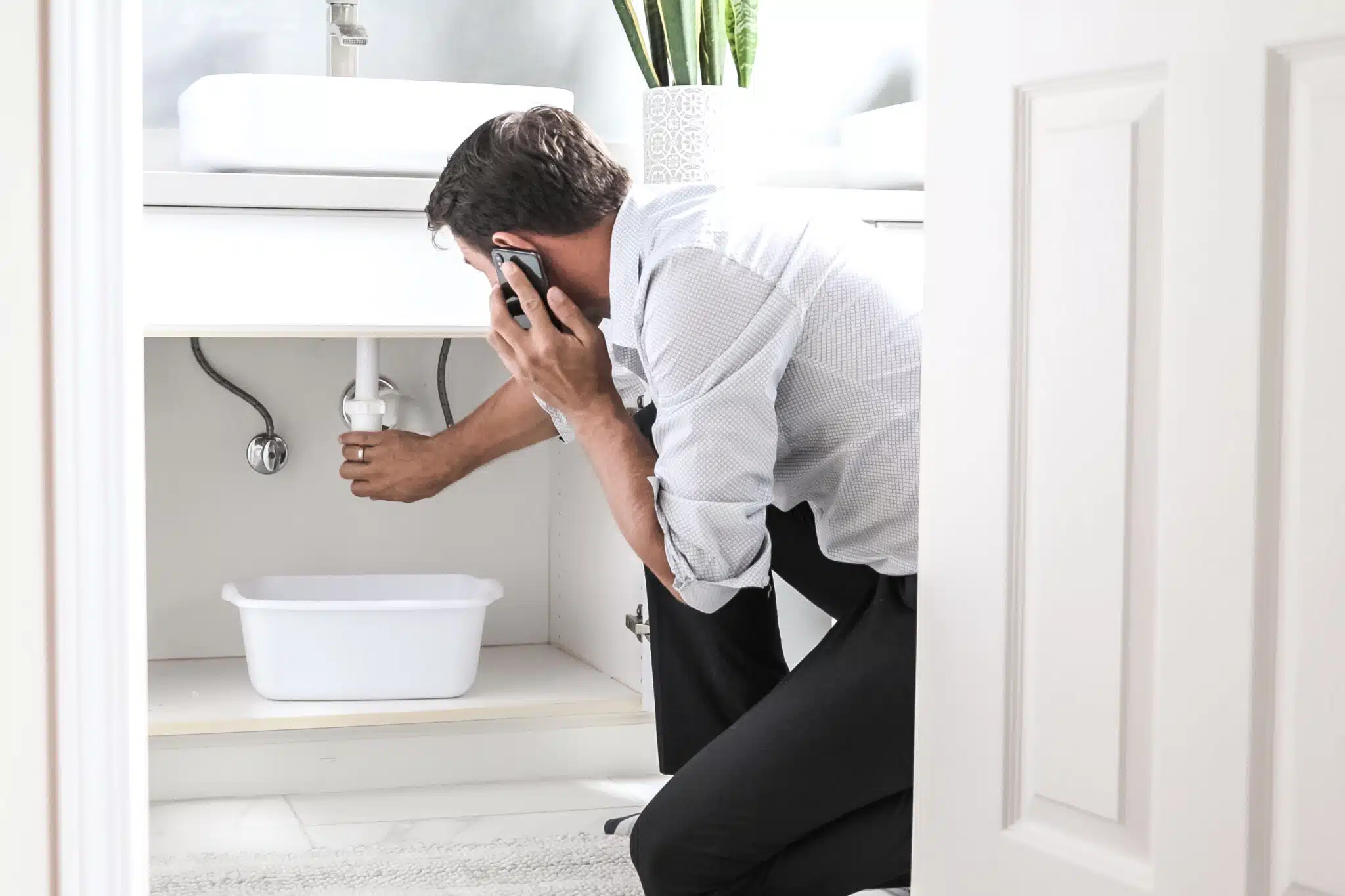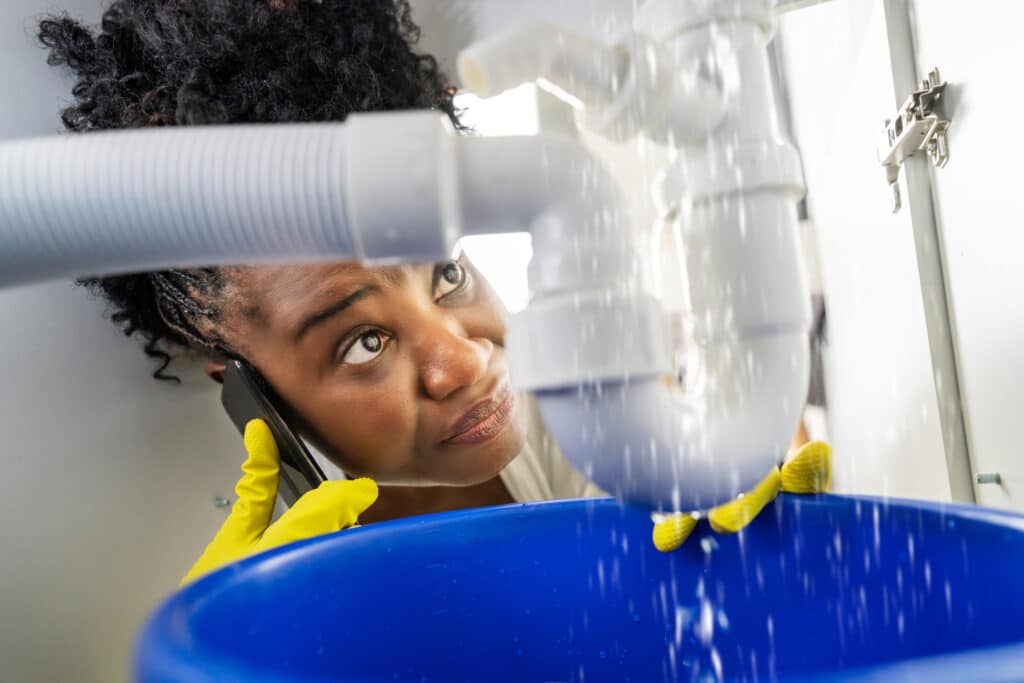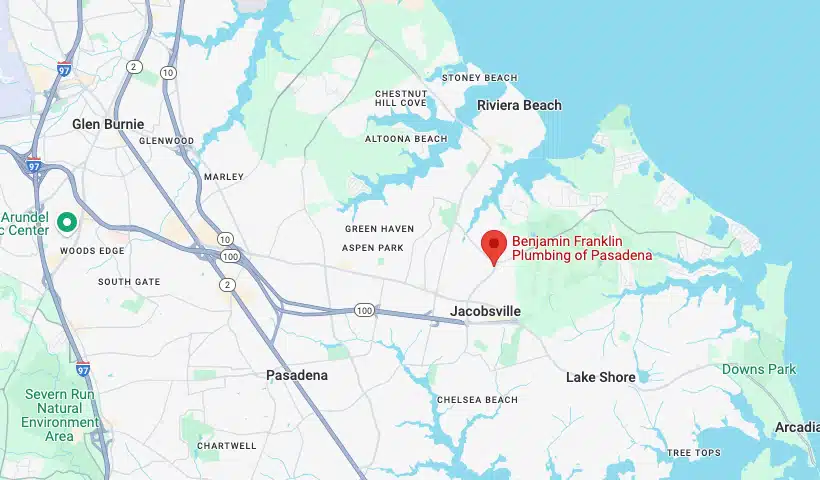Why Plumbing Leaks Occur and How to Minimize the Risks

Plumbing leaks can start as something small—like a tiny drip under your sink. You think it’s harmless, right? Wrong! That small leak can grow into a serious problem, damaging your home, hiking up your water bill, and even leading to mold.
Whether you live in Pasadena or Glen Burnie, MD, understanding the causes of plumbing leaks and how to prevent them can save you time, money, and stress. In this blog, we’ll go over the most common reasons for plumbing leaks, how to spot them early, and simple ways to keep your pipes in check.
What Are Plumbing Leaks and Why Should You Care?
Plumbing leaks occur when water escapes from pipes, fittings, or fixtures due to factors like wear, damage, or improper installation. Even the smallest plumbing leaks can waste gallons of water, driving up your water bills and leading to unnecessary costs.
If left unaddressed, these leaks can cause severe damage to your home, such as warped floors, crumbling walls, or even compromising the foundation. Additionally, plumbing leaks create an ideal environment for mold and mildew to thrive, impacting both your health and your home’s air quality.

Common Causes of Plumbing Leaks
Understanding what causes plumbing leaks can help you prevent them before they turn into major issues. There are several reasons why leaks occur, ranging from natural wear and tear to external factors like tree roots or water pressure.
Let’s break down the most common culprits so you can keep your home safe and your plumbing in good shape.
Corrosion
Over time, pipes can corrode due to natural aging, exposure to poor-quality water, or chemical reactions. Corrosion weakens the metal, creating holes or cracks where water escapes.
Older homes are especially vulnerable if their plumbing hasn’t been updated in years. Regular inspections can help catch corrosion early before it leads to a serious leak.
High Water Pressure
Excessive water pressure can put undue stress on pipes, causing them to crack, burst, or weaken at the joints. While strong pressure might feel great in the shower, it’s a hidden danger for your plumbing system.
Over time, this strain can create leaks in connections or fittings. Installing a pressure regulator is a smart way to protect your pipes.
Loose or Worn-Out Fittings
The connectors and fittings that hold your plumbing together naturally loosen or wear out over time. Small gaps or cracks form as a result, allowing water to escape.
This is especially common in frequently used fixtures like faucets, hoses, or showerheads. Regularly checking and replacing these components can stop leaks before they start.
Tree Root Intrusion
Tree roots naturally seek out water sources, and your underground pipes might be an easy target. As roots grow and press against pipes, they can create blockages, cracks, or even full breaks.
Homes with large trees near the plumbing lines are especially at risk. A professional plumber can identify and fix root-related issues without causing further damage.
Temperature Changes
Extreme weather can wreak havoc on pipes, especially during freezing and thawing cycles. When water inside pipes freezes, it expands, often leading to cracks or fractures.
As temperatures rise, those frozen pipes thaw and start leaking. Insulating your pipes can help protect them from harsh conditions.
Poor Installation
Improper installation of pipes or fixtures is another leading cause of plumbing leaks. If fittings aren’t secured correctly or pipes aren’t aligned properly, it can lead to constant stress on the plumbing system.
This increases the chances of leaks forming over time. Always rely on skilled professionals for installations to ensure everything is done right.
How to Minimize the Risks of Plumbing Leaks
Preventing plumbing leaks doesn’t have to be complicated. With a little effort and regular maintenance, you can avoid costly repairs and keep your home safe.
Taking proactive steps ensures your plumbing system stays in good shape for years to come. Here are the best ways to minimize the risks of plumbing leaks.
Regular Inspections
Checking your plumbing regularly is one of the simplest ways to catch leaks early. Look for visible signs like water stains, damp spots, or unusual puddles around pipes and fixtures.
Test your water pressure periodically to ensure it’s not too high, as excessive pressure can lead to leaks. By staying alert, you can address small problems before they turn into big ones.
Proper Maintenance
Simple maintenance tasks like replacing worn-out fittings, seals, or washers can go a long way in preventing leaks. Over time, these small components wear down from regular use and can create gaps where water escapes.
Make it a habit to inspect and replace these parts before they fail. This keeps your plumbing system working efficiently and avoids unnecessary damage.
Insulate Pipes
In areas like Pasadena and Glen Burnie, MD, winter temperatures can drop enough to freeze your pipes. Insulating your pipes helps protect them from freezing and bursting when the weather gets cold.
Foam pipe insulation is easy to install and provides an extra layer of protection. This small investment can save you from major repairs caused by extreme temperature changes.
Monitor Water Usage
Keeping an eye on your water meter can help you detect hidden leaks. If you notice sudden spikes in your water bill without any change in usage, it could mean there’s a leak somewhere.
Turn off all water-using appliances and check your meter. If it’s still moving, you likely have a hidden problem that needs attention.
Install a Pressure Regulator
Excessively high water pressure puts unnecessary strain on your pipes, which can lead to cracks and leaks over time.
A pressure regulator ensures the water pressure in your home stays within safe levels. It’s a simple device that can prevent costly damage to your plumbing system and extend its lifespan.
Use High-Quality Materials
Investing in durable, corrosion-resistant pipes and fixtures can save you money in the long run. Materials like copper, PEX, or PVC are designed to withstand wear and tear better than outdated options.
When upgrading or installing plumbing, prioritize quality to reduce the risk of leaks and ensure long-term reliability.
Signs You May Have a Plumbing Leak
Spotting a plumbing leak early can save you from costly repairs and prevent extensive damage to your home. While some leaks are obvious, like a dripping faucet, others can hide behind walls or underground, making them harder to detect.
Being aware of the warning signs can help you act quickly before the problem worsens. Here are the most common signs to watch for.
Increased Water Bills
One of the first signs of a hidden plumbing leak is an unexpected spike in your water bill. If your usage hasn’t changed but your bill keeps climbing, water is likely escaping somewhere in your system. Even small, unnoticed leaks can waste hundreds of gallons over time, leading to higher costs.
Damp Spots or Stains
Water stains on your walls, ceilings, or floors are clear indicators of a leak. These spots often appear discolored, warped, or damp to the touch.
Left untreated, they can lead to structural damage and mold growth. Inspect these areas carefully and address any leaks immediately to avoid further damage.
Low Water Pressure
A sudden drop in water pressure can signal a leak somewhere in your plumbing system. This is especially common with hidden leaks in pipes that supply water to multiple fixtures.
If the pressure in your shower or faucets is consistently low, it’s worth investigating further to pinpoint the issue.
Unusual Noises
Hearing dripping, hissing, or the sound of running water when no taps are open could mean there’s a leak. These sounds are often caused by water escaping from pipes or fittings.
Pay attention to these noises, especially at night when your home is quieter, to identify potential trouble spots.
Musty Odors
Persistent musty smells in your home often indicate mold or mildew caused by a leak. Even if you can’t see visible water damage, the odor suggests moisture is present where it shouldn’t be.
Mold thrives in damp conditions and can pose serious health risks, so finding and fixing the source of the leak is crucial.
The Long-Term Benefits of Preventing Plumbing Leaks
Preventing plumbing leaks doesn’t just save you money in the short term—it offers lasting benefits that protect your home, health, and peace of mind.
By staying proactive, you can avoid costly repairs, safeguard your property, and contribute to a more sustainable environment. Here’s why prevention is always worth the effort.
Save Money
Fixing leaks early means lower water bills and fewer repair expenses. Even a small leak can waste hundreds of gallons of water every month, adding unnecessary costs to your utility bill.
By addressing problems before they escalate, you’ll save a significant amount over time and avoid expensive damage control.
Protect Your Home
Leaks that go unnoticed can cause major structural damage, including rotting wood, weakened drywall, and even foundation cracks.
Water can seep into hidden areas, compromising the safety and stability of your home. Preventing leaks keeps your property in good condition and helps maintain its value for the long term.
Conserve Water
Every drop counts, especially when it comes to conserving our natural resources. Preventing leaks reduces water waste, which is not only good for your wallet but also for the environment. By fixing leaks promptly, you’re contributing to a more sustainable future while keeping your home efficient.
Enhance Peace of Mind
Knowing your plumbing system is in top shape allows you to relax without worrying about unexpected emergencies. Preventive measures eliminate the stress of sudden water damage or high repair costs.
With a well-maintained system, you can enjoy a safe, comfortable home without plumbing troubles hanging over your head.
When to Call a Professional Plumber
While there’s a lot you can do to maintain your plumbing, some situations call for the expertise of a professional plumber. Attempting to fix complex issues on your own can sometimes make the problem worse.
Knowing when to call in the pros can save you time, money, and unnecessary stress. Here are the key times to reach out for professional help.
Persistent Issues
If a leak keeps coming back after multiple DIY fixes, it’s time to involve a plumber. Recurring leaks often indicate a deeper issue within your plumbing system that needs a professional eye. A professional plumber can diagnose and resolve the root cause to prevent future problems.
Hidden Leaks
Leaks behind walls, under floors, or underground can go unnoticed until significant damage occurs. Professionals use advanced tools like thermal imaging cameras or acoustic sensors to locate hidden leaks without tearing up your home.
These tools allow for precise detection and targeted repairs, saving you from unnecessary disruptions.
Pipe Repairs or Replacements
Major pipe damage, such as cracks, bursts, or corroded sections, requires expert handling. A professional plumber can replace damaged pipes safely and efficiently, ensuring the new system is durable and leak-free. Attempting these repairs without proper training can lead to further damage and costly mistakes.
Complex Installations
When upgrading your plumbing system or installing new fixtures, it’s best to rely on a professional. Proper installation ensures everything is secure and functioning correctly, reducing the risk of leaks or malfunctions down the road. Investing in professional expertise now can save you from future headaches.
Stop Plumbing Leaks Before They Start – Call the Pros in Pasadena and Glen Burnie!
Don’t let plumbing leaks disrupt your home, increase your water bills, or cause costly damage. At Benjamin Franklin Plumbing of Pasadena, we specialize in identifying and fixing plumbing leaks quickly and efficiently for homeowners in Pasadena and Glen Burnie, MD.
Whether it’s a small drip or a hidden issue, our team is here to ensure your plumbing leaks are handled with care and expertise. Contact us today to protect your home from plumbing leaks!

Frequently Asked Questions (FAQ)
How often should I check my plumbing for leaks?
It’s a good idea to inspect your plumbing at least once a year. Additionally, check after extreme weather or if you notice unusual water bills or pressure changes.
What are the best materials to prevent plumbing leaks?
Durable materials like copper, PEX, or PVC pipes are great choices. They resist corrosion and are designed to last longer, reducing the risk of leaks.
Can high water pressure cause leaks?
Yes, consistently high water pressure can strain your pipes and fittings, causing cracks or bursts. Installing a pressure regulator can help maintain safe pressure levels.
How do I know if I have a hidden plumbing leak?
Look for signs like higher water bills, damp spots, musty odors, or low water pressure. If you’re unsure, call a plumber to inspect for hidden issues.
Should I try to fix plumbing leaks myself?
Simple leaks like a dripping faucet can often be fixed with basic tools. For major or recurring leaks, it’s best to call a professional to avoid causing further damage.






